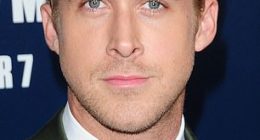Patients with aggressive, incurable cancers saw their tumours stop growing after they began taking a twice-a-day tablet.
The experimental drug, called ceralasertib, is designed to stop the tumour’s cells from repairing themselves, causing them to die.
Researchers gave 67 patients who had not responded to conventional treatment the pills. In the early stage of the trial, more than half saw their tumours stop growing, while others did not see their cancer progress for at least three years.
Experts believe the drug could be combined with immune-boosting cancer treatments to increase their effectiveness.
Known as immunotherapy, they are offered to around one in ten cancer patients in the UK. They work by training the immune system to find and kill cancer cells.
However, in many cases cancer cells can disguise themselves to avoid treatments, which has led researchers to develop drugs that can help the immune system recognise them. Ceralasertib, for instance, targets the protein ATR, which aids in cell repair.


The experimental drug, called ceralasertib, is designed to stop the tumour’s cells from repairing themselves, causing them to die (stock image)
‘The drug damages the DNA of the cancer, which inflames the tumour,’ says Dr Magnus Dillon, a clinician scientist at The Institute of Cancer Research. ‘The theory is this inflammation in the body will get the attention of the immune system to attack the cancer.’
Last month’s study explains how researchers gave the 67 patients – who all had various incurable cancers – ceralasertib to monitor whether it was safe for human consumption. Some 34 of them saw their tumours stop growing.
One patient, George Pieri, 70, has skin cancer in his lower lip which spread into his throat. He was treated with chemotherapy, radiotherapy and an operation to remove a bone in his lower jaw. However, nothing stopped the disease spreading. But since taking ceralasertib, as part of a trail at the Royal Marsden hospital in London, George’s cancer has remained stable and he has suffered no side effects.
‘There was nothing else for me,’ he says. ‘It’s surprising all it took was two pills a day. I’m so pleased I have this time to spend with my children and grandchildren.’
Dr Dillon says the next step will be combining ceralasertib with immunotherapy drugs. He adds: ‘We are still in the early stages but this looks like it could be a really interesting treatment.’
Source: Mail Online










